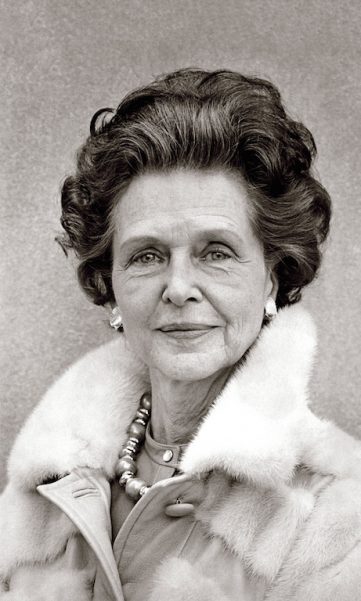
BY JUDY CARMACK BROSS
I have never seen a group of women who, when asked who wants to work on something, everyone raises her hand. They are movers and shakers who really care. Mary Ward Wolkonsky was so self-effacing, she never realized what she accomplished by starting Know Your Chicago. —Jo Minow, on Know Your Chicago
***
For 70 years the extraordinary women who run Know Your Chicago have educated, entertained, and enlightened Chicagoans, taking them to the highly diverse places that make our city tick.
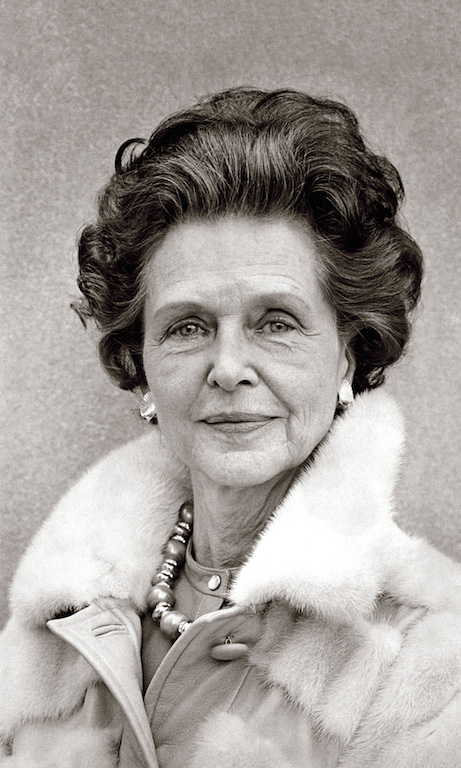
Mary Ward Wolkonsky. University of Chicago Photographic Archive, [apf7-01518], Special Collections Research Center, University of Chicago Library.
Begun by Mary Ward Wolkonsky, a dazzling leader unlike any other, this year’s series opened with a seminar on September 6 and continues with two tours each week on topics ranging from autism to architecture, the South Shore to Englewood, and literacy to a good night’s sleep—all with a unique Chicago perspective.
Astonishingly creative and always charming, Mary set the pace for the program, now given in partnership with the University of Chicago’s Graham School, which keeps people clamoring for tickets. Until her death at 94, Mary never gave up her interest in Know Your Chicago. Current Chair Penny Obenshain remembers Mary’s impact:
“Although she was no longer working individual tours, she came to our committee meetings, always in high heels and always looking gorgeous. She never gave up her interest in the group and when someone might occasionally suggest that we do a program on something outside of Chicago, she would tell us that our focus was Chicago and that there is enough to keep us busy here.
“We are part of national conversations but demonstrate how they relate to our own community. It is amazing the number of public and private institutions that open their doors to us.”
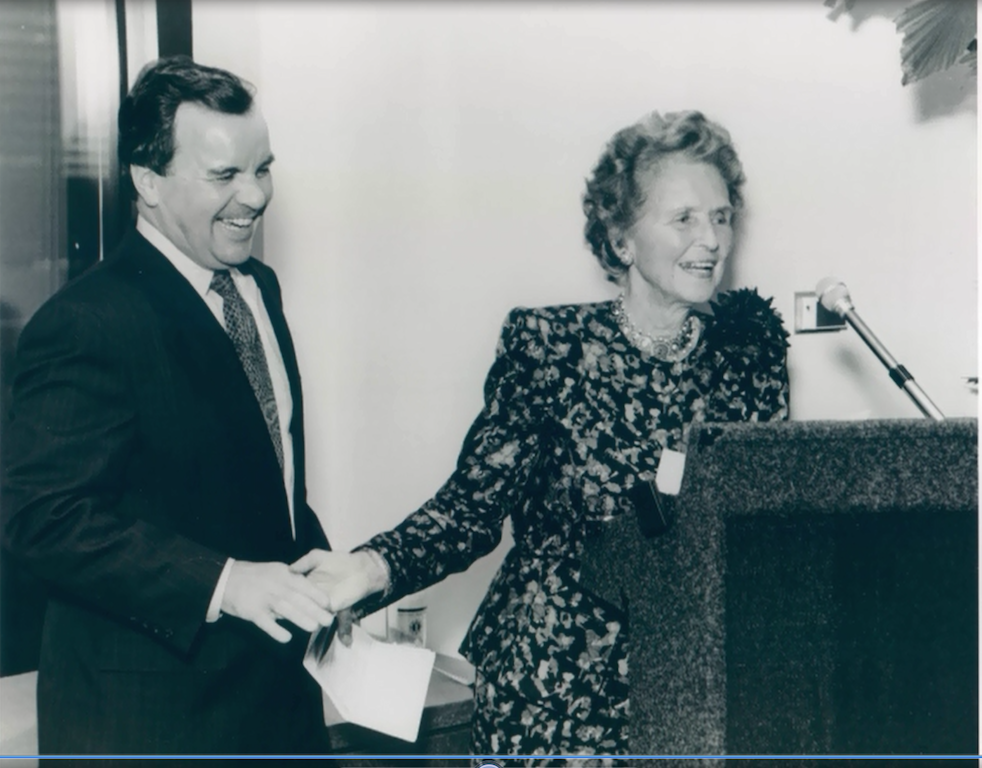
Former Mayor Daley and Mary Ward Wolkonsky.
Throughout its history, some of our city’s most admired women, including Jo Minow, Beth Sonnenschein, Jan Jentes, Pam Sheffield, and Judy Block have led the program. Planning meetings begin in January and often a member with a particular enthusiasm for a topic comes with a folder full of information she would like to suggest.
Penny describes the committee as having a “pretty flat organizational structure,” with various women, usually around six in number, running a different tour every year. Penny reports that the committee is always recruiting talented and smart women to join them.
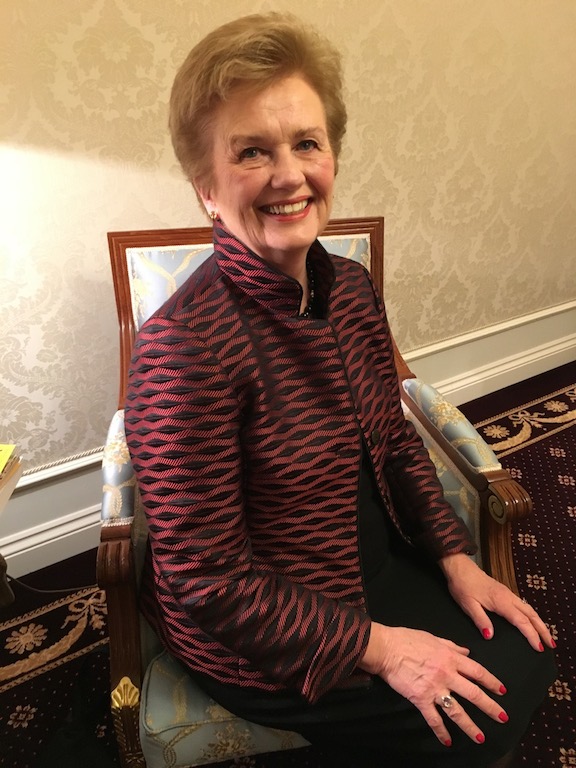
Penny Obenshain.
Over 400 women and men sign up each year. For years, tickets were sold by lottery due to its popularity and the fact that smaller agencies don’t have space for lots of visitors. Fans of the program avidly watch the website to order their tickets when first announced in early summer. There are still places for a few of this year’s tours.
“Some tours sell out two hours after they were announced. Regulars are poised to hop onto our website in July when they know tour tickets will be available.
“But you don’t have to be going on a tour to attend the symposium. In fact, several people choose to just do that. We select well-known speakers who frame our timely topics. We have a practice day the day before to make sure the audiovisuals and speakers are ready—that really makes it go.”
To Beth Sonnenschein, chair from 2009 to 2012, the organization’s staying power is to be celebrated:
“The fact that we have had a long-term durability since 1948 is quite amazing. When you consider what the world was like in 1948 and how it has changed, we are still very well intact. And more than that, we have been creative along the way. We have dealt with important topics but have stayed on the block. We have upheld our mission but have also shown growth.
“The role of the opening symposium, which is held at the Ida Noyes Hall at the University of Chicago, is very important. By presenting speakers who talk in depth about our tours for the year, the symposium underscores the educational part of Know Your Chicago.”
Reflecting the collective experiences, expertise, and resources of the Know Your Chicago committee, the tour subjects couldn’t be more far reaching or more cutting edge. Each extensively researched, no tour has ever been repeated.
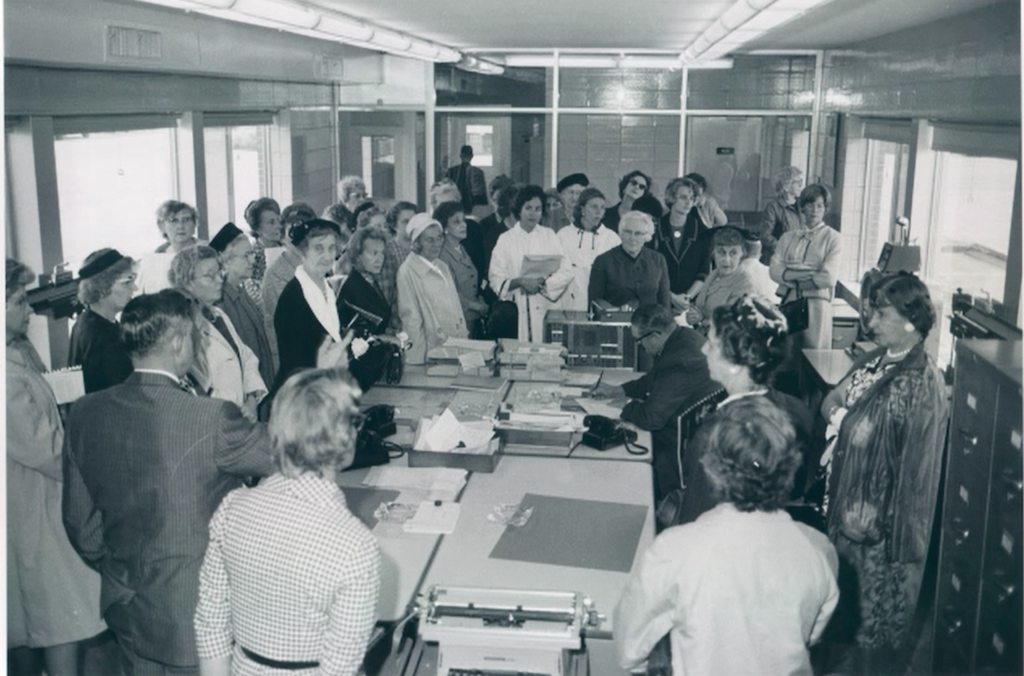
On tour.
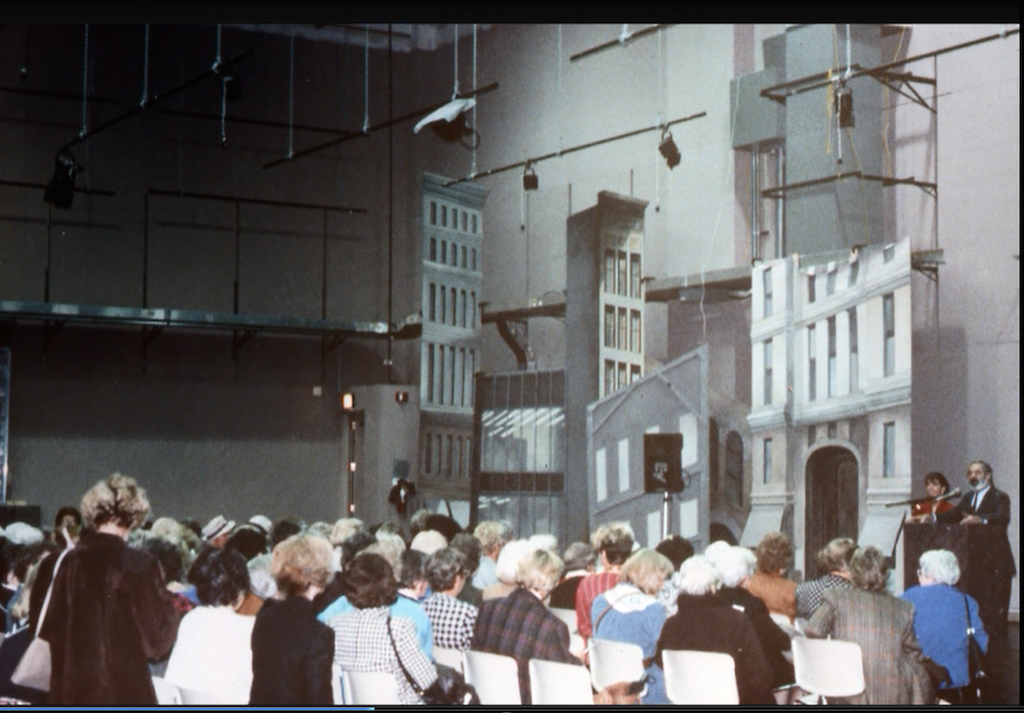
Visiting a stage set.
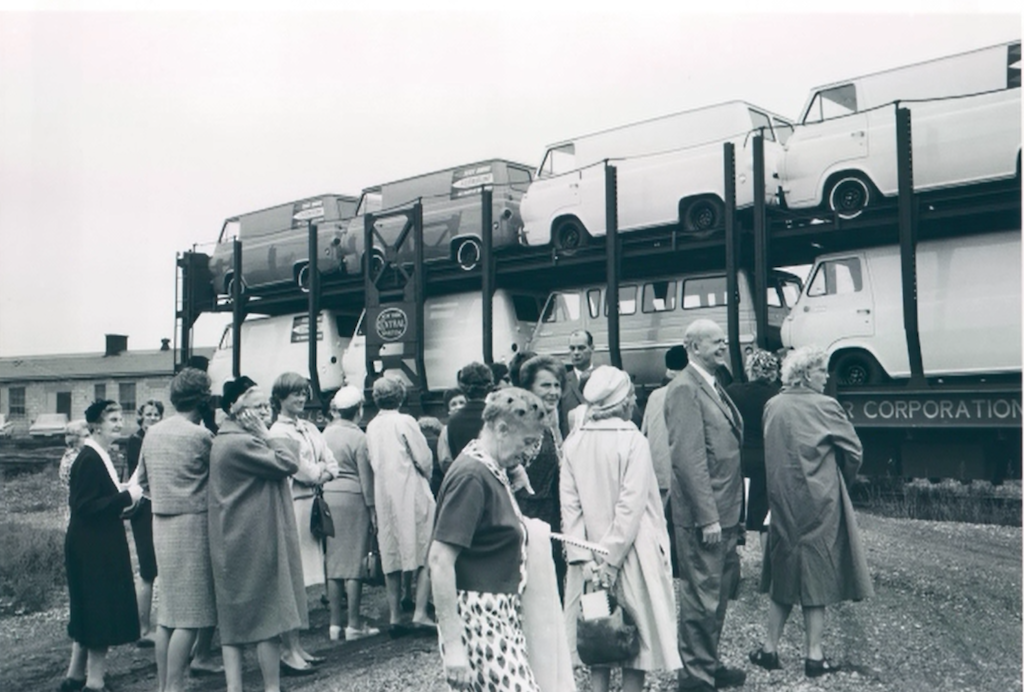
Well dressed and exploring.
Topics over the years have ranged from bionic breakthroughs in robot technology, planning for Chicago in the 21st century, invasive species in Chicago waters (which included a boat trip on the Chicago Sanitary and Ship Canal, a trip subscribers still talk about), poetry slams, and visits to Hindu temples, drug rehabilitation centers, gardens, educational institutions, medical centers, and museums—just about any meaningful place that might catch your interest. And it’s not just the visit, it is the story behind the scenes the guides are able to share in such small, intimate groups.
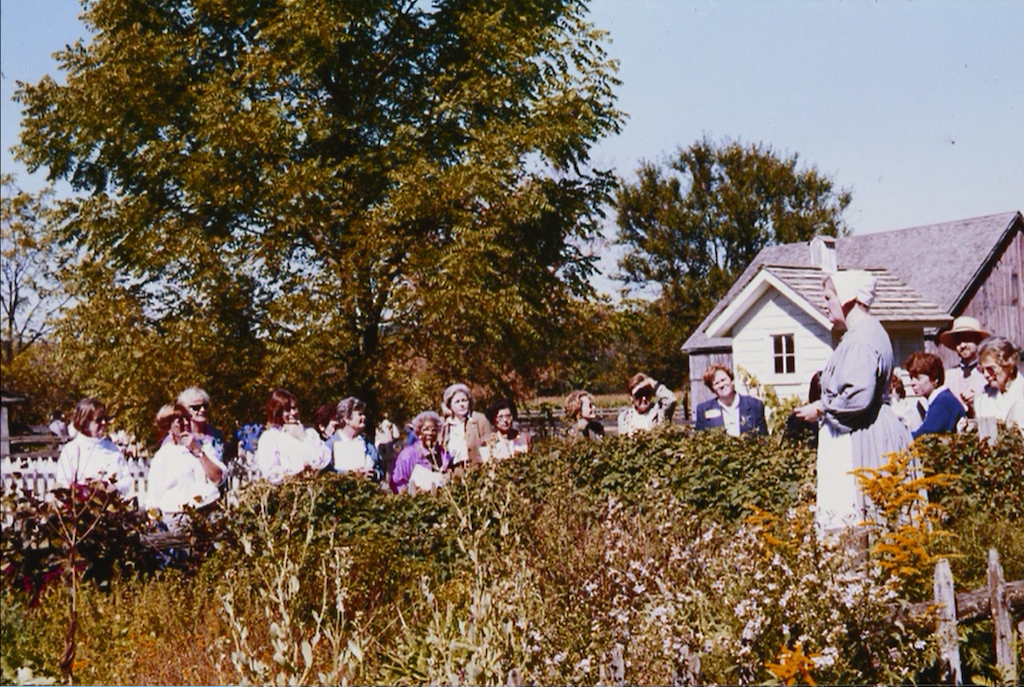
Touring an area farm.

Traveling by train.
Beth points out: “Sometimes people sign up because they are so enthusiastic about a particular tour, others come based on what their calendar permits. They may not have known much about that topic but come away saying that it was a wonderful tour and very eye-opening.”
We asked Beth and Penny about favorite tours in memory, and they both mentioned a visit in 2005 to the Warrenville prison for women and girls. Beth recalled:
“No one in our group of 120 had visited there before, and it was very impressive. Security was extremely tight: no cell phones, no medications—not even an aspirin could be brought in. The girls participated in a song and dance program based on scripts they had written about their own lives. They asked how many felt strengthened to have participated in this theater program, and they all raised their hands. I remember Sheila Kalish, a lawyer for whom helping children is close to her heart, putting together that tour.”
Penny added: “Being able to sit with the women prisoners was amazing. Since our tour, I have heard that more programs and opportunities for learning have opened up for the residents. Another very special tour was to the Food Depository—what a major operation that impacts so many people.”
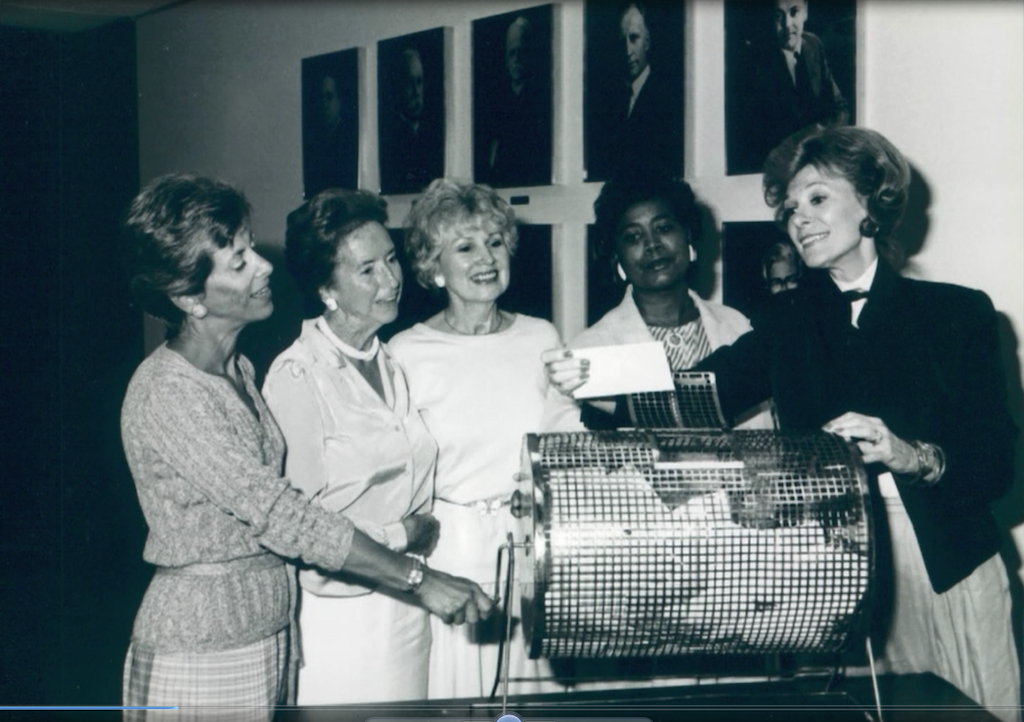
An past Know Your Chicago team.
Jan Jentes, chair during the 1990s, says, “Know Your Chicago’s greatest service is exposing our subscribers to in-depth looks into issues of the day, how they can get involved, and behind the scenes looks into new or off-limits places.” Some of her favorite tours were ones on immigration, homelessness, drugs, and hip hop and rap: “My predictions are that Know Your Chicago will always strive to educate rather than entertain our subscribers, exposing them to new ways to look at issues.”
Chicago celebrates the Know Your Chicago committees whose insight over the past 70 years has made so many participants more active and engaged in the city thanks to the tours and symposiums they have attended:
***
Several of our members who have moved away tried to start a similar program in their new cities: Paula Trienens in New York, for example. These never worked. Chicago really cares about its community and helps us make Know Your Chicago happen.—Jo Minow



